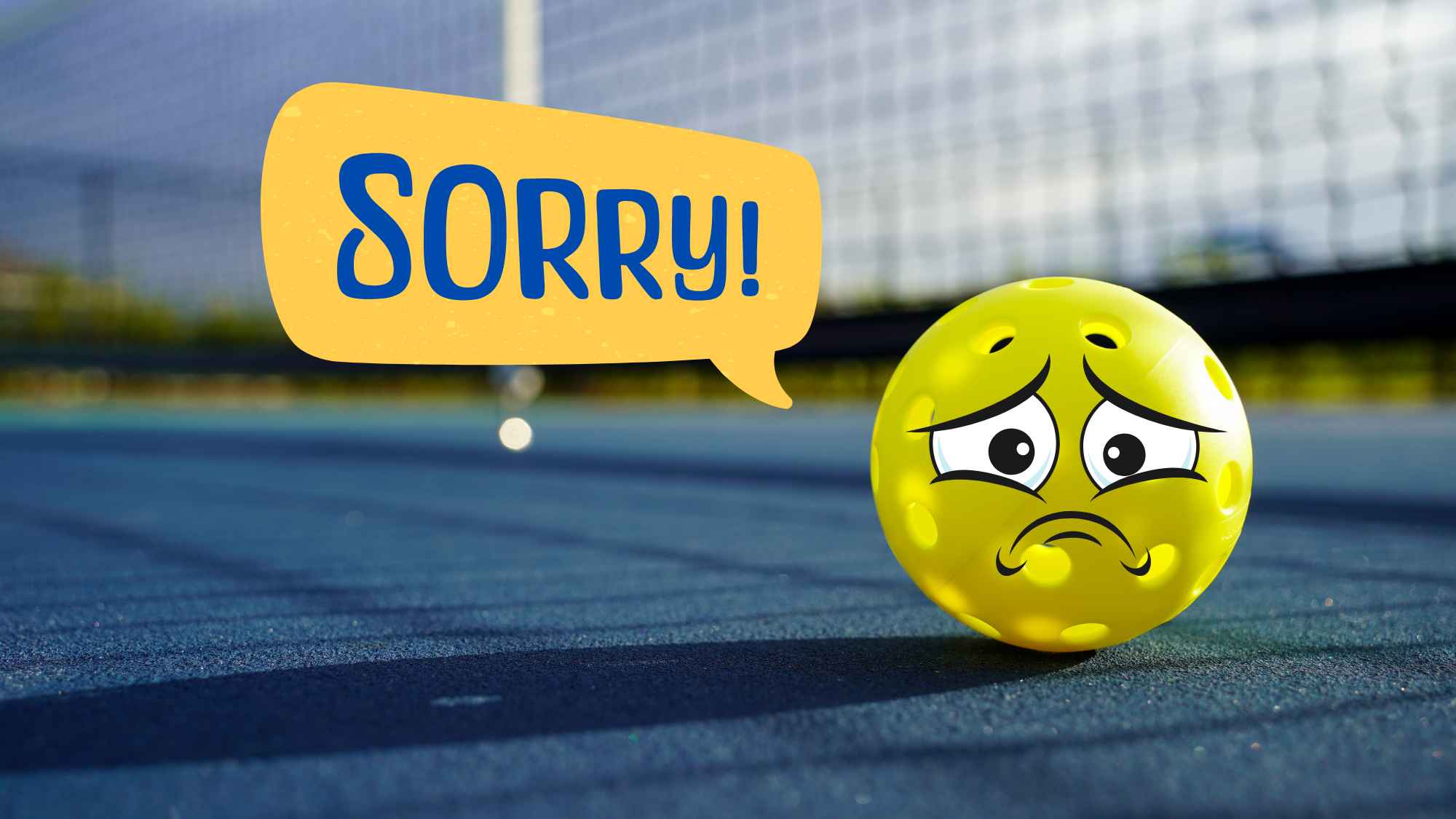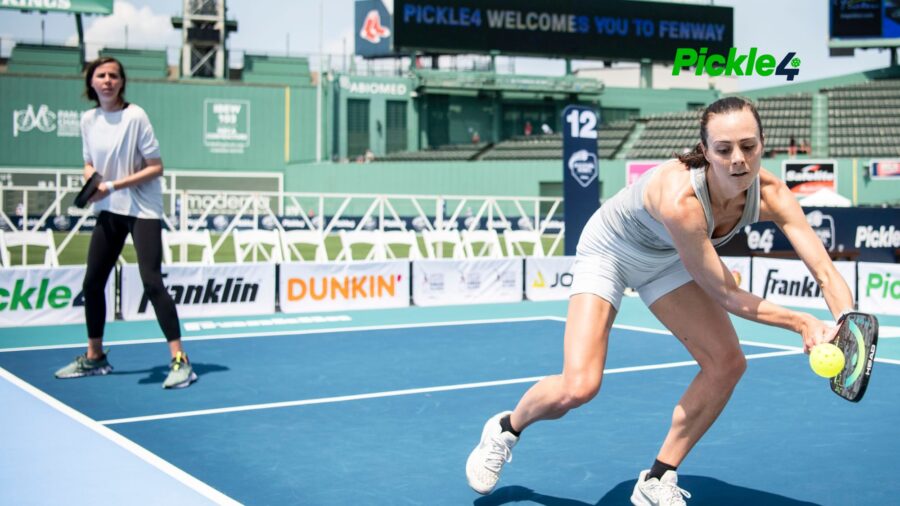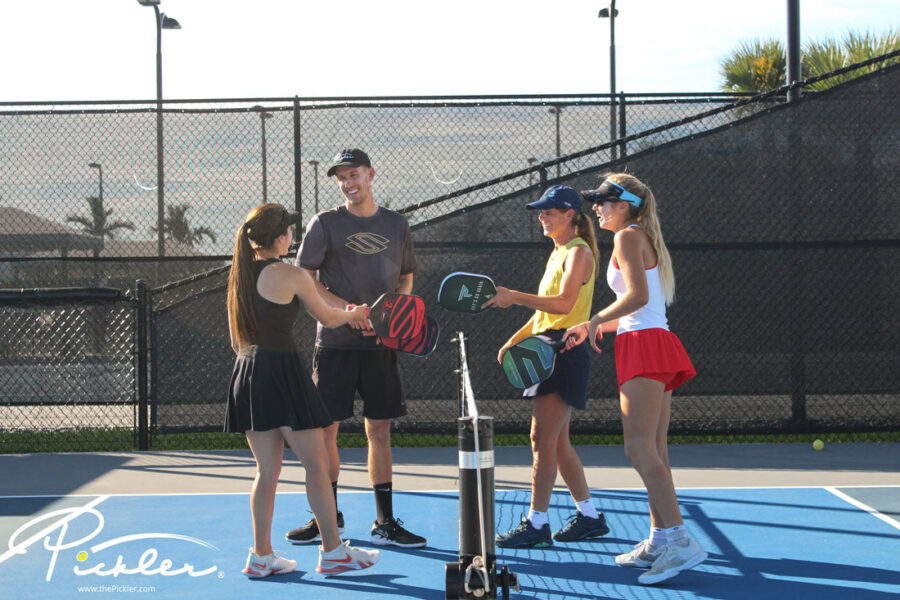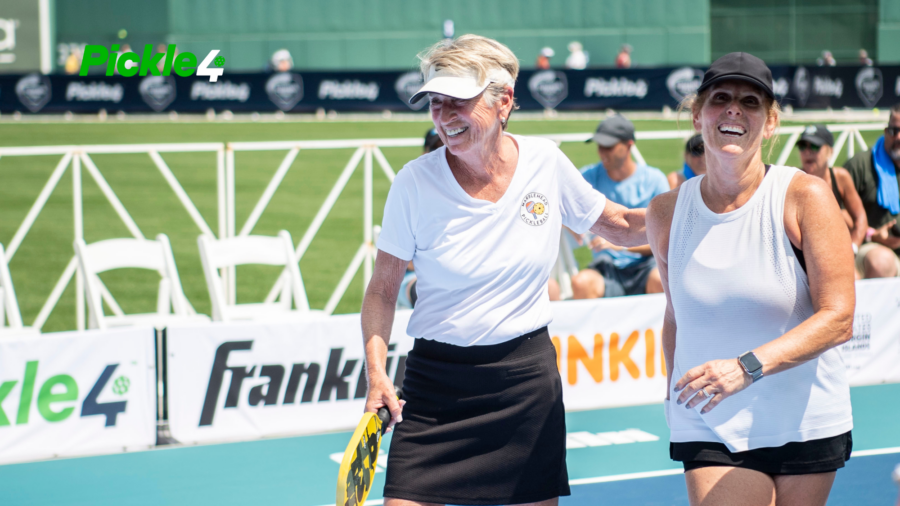“An apology is the superglue of life. It can repair just about anything.” – Lynn Johnston, syndicated comic-strip writer
“A genuine apology is like an eleventh-hour rain on a dusty crop. Grossly overdue, but miraculously just in time.” – Jacqueline A. Bussie, author, professor, theologian
“There is no ‘I’m sorry’ in pickleball.” – pickleball axiom
__________________________________________________________________________
In case you haven’t noticed, the ethos of pickleball seems to be at odds with the world outside the boundaries of the court.
We’re continually reminded of the soul-cleansing need to issue prompt apologies when we are to blame for something. Whether in the company of our dearest friends and family, or just with the people we casually interact with in public or on the job, the general advice is to quickly own up to mistakes.
Playing pickleball gives most of us a vast new opportunity to be apologetic, especially if we’re playing doubles games with people we barely know – which is often the case in recreational level open play.
You put your paddle in the rack with a group of strangers, one becomes your partner, and within minutes, a hard-fought rally ends with an unforced error.
We probably have all been in that situation. This is especially true for we here at Murmurs from the Losers’ Bracket.
Despite our best efforts, we fulfill a reliable quota of boneheaded, bad-miss hits every game. Rare is the game that all of our third-shot drops drop on the other side of the net.
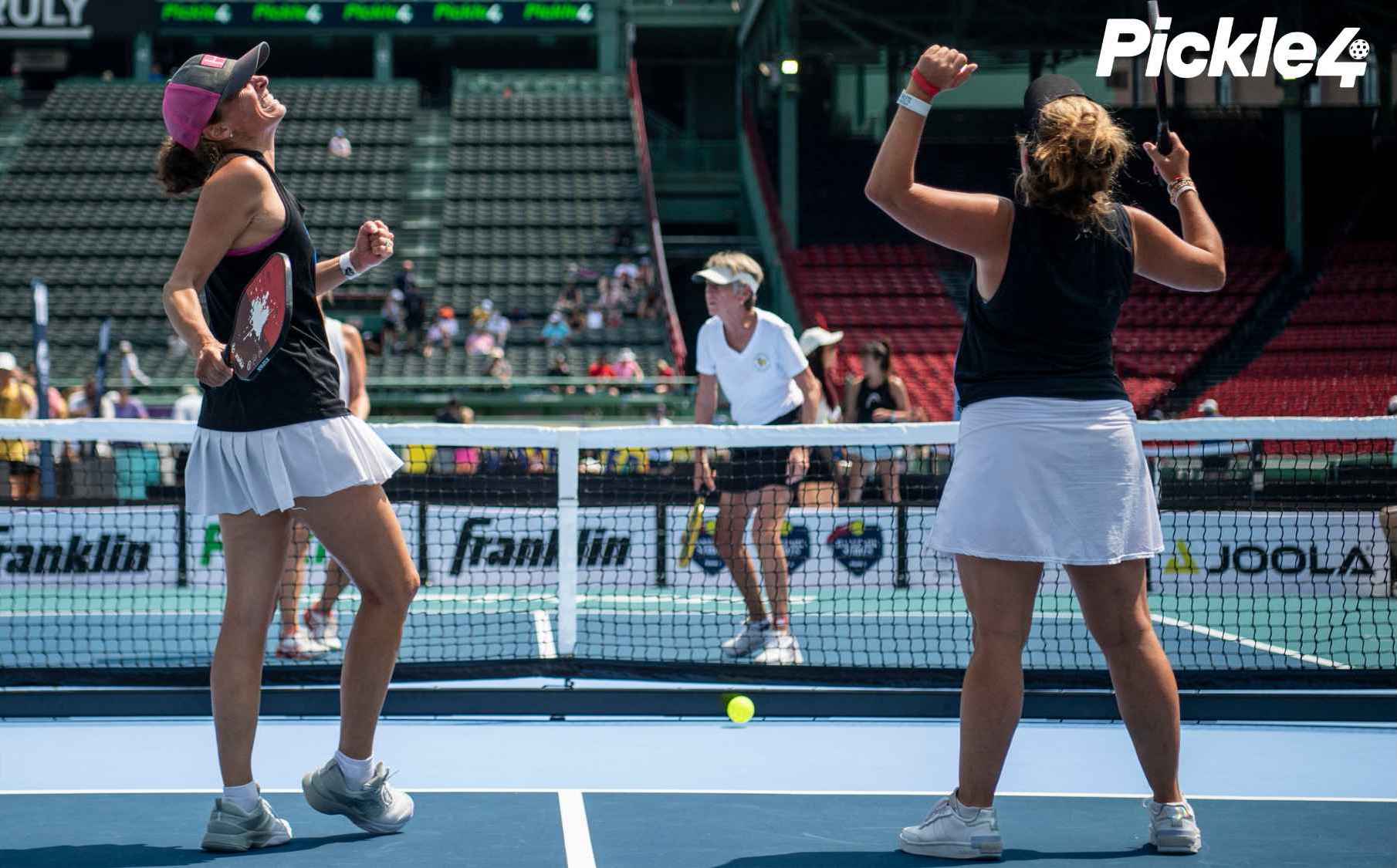
Easy put-aways that sail long over the baseline is a regular feature of our game. And too many times, an improbable, athletic “get” by our partner during a rally is all for naught when we flub an easy return on the next shot.
“I’m sorry,” we want to reflexively say time and again, even though we know it’s not pickleball-kosher to be apologizing.
And being brutally honest with ourselves, sometimes saying “I’m sorry” is grounded in a need for immediate absolution more than anything else. We’re not doing it to express our regret as much as hoping for a heartfelt, “That’s OK”, from our partner.
It’s just a needy quest for approval at a vulnerable moment.
Maybe this is why, when these opportunities arise in games, I usually opt for saying a quick, “My bad” to my partner. It’s a way to acknowledge responsibility without appearing to require a response that a full paddle-tapping, eye-contact “I’m sorry” might elicit.
There are other options too. We mediocre players have found interesting ways to handle the numerous “I’m sorry” opportunities that pop up in a game.
“Before we start this game,” I’ll sometimes say, “I want to issue a blanket apology for the unforced errors I will be making in this game.”
If somebody says that to me, I will quickly respond with “Likewise”, or something like, “It’s all good. It’s just pickleball. Let’s just have some fun.”
This is the time we usually remind each other that there’s no saying “I’m sorry” in pickleball.
We say that, but sometimes these apologies serve the function of eliciting valuable information about our partners.
I have been with partners who take the game way too seriously, and react badly to an apology after a missed opportunity to win a point.
Instead of being good-natured about your apology, they will convey through silence, body language, eyerolls, groans, and other means just how disappointed they are in you.
When this happens, it tends to sour the whole game. I find myself starting to root for my own partner to screw up the next point. This is no way to enjoy the game.
I guess, in the end, it’s important to find people to play with who are keeping score, but not keeping score – if you know what I mean.
There was an essay on this topic published in The Los Angeles Times this month, under the headline, “How pickleball taught me to stop saying sorry and learn to have fun.”
The writer, Kate Spencer, is co-host of a self-care podcast called Forever 35, and a self-described “tightly wound, neurodivergent, people-pleasing extrovert” who became addicted to pickleball as a middle-aged woman and started taking lessons in a group class.
“I do not enjoy being bad at something, especially not in front of other people,” she wrote.
She said her pickleball instructor demanded that she and the other students in her group stop saying “sorry” to each other, she wrote. And it was transformational.
“Shockingly, I learned I am not the only person who dreads making mistakes around other people,” she wrote. “So my friends and I practiced something new that day: screwing up on the court and living with it.”
MURMURS FROM THE LOSERS’ BRACKET
Read past editions of Murmurs from the Losers’ Bracket, including:
- Top 10 Signs it’s too Hot to Play Pickleball Outside
- Coming In from the Heat
- The Ozempic Ad
- Ball On Court? Maybe Not
- The PPA, the APP and Monty Python
- Time to Get Help at Bangers Anonymous
- “It’s an Injury Sport”
- A Pickleball Translation Guide
- What’s Your Pickleball Nickname?
- Tennis the Menace
- Is There Such a Thing as “Pickleball Torture”?
- How to Be an Effective Pickleball Snob
- All You Need Is Glove
- The Lesson McDonald’s French Fries Have for Pickleball
- Tunes on the Court
- The Poetry of Empty Courts
- “Head Targeting” Rule Change Not a Brainy Idea
- Getting Beyond “Good Game”
- Why Are Pickleball Trophies Such a Big Deal?
- Stop Messing with the ATP
- When Discussions of Rules Turn Unruly
- A Former Pickleball Addict Speaks Out
- Separating the Drinkers from the Dinkers
- Turning Every Magazine into a Pickleball Magazine
- Zen and the Art of Pickleball Maintenance
- Spirited Pickleball Poetry
- Making Pickleball Less “Devastating” to Amateurs
- Finding Romance on the Pickleball Court: Top 10 Pickup Lines
- Sign of the Times: Pickleball License Plates
- Red Light, Green Light: Playing Traffic Cop on the Court
- The Pickler Limerick Challenge
- The Pickler Limerick Challenge Heats Up
- The Pickler Limerick Challenge Wraps Up
- Pickleball & the $100 Hamburger
- Before We Play, Partner, Please Sign This…
- Pickleball’s Most Powerful Spoken Word
- It’s Been a Hard Day’s Night for Pickleball Skeptics
- Be Kind to Your Local “Paddle Sheriff”
- Is There Such a Thing as Too Many Paddles?
- Silence Is… Not My Style
-
“Going Ham” Over Pickleball’s Generational Divide
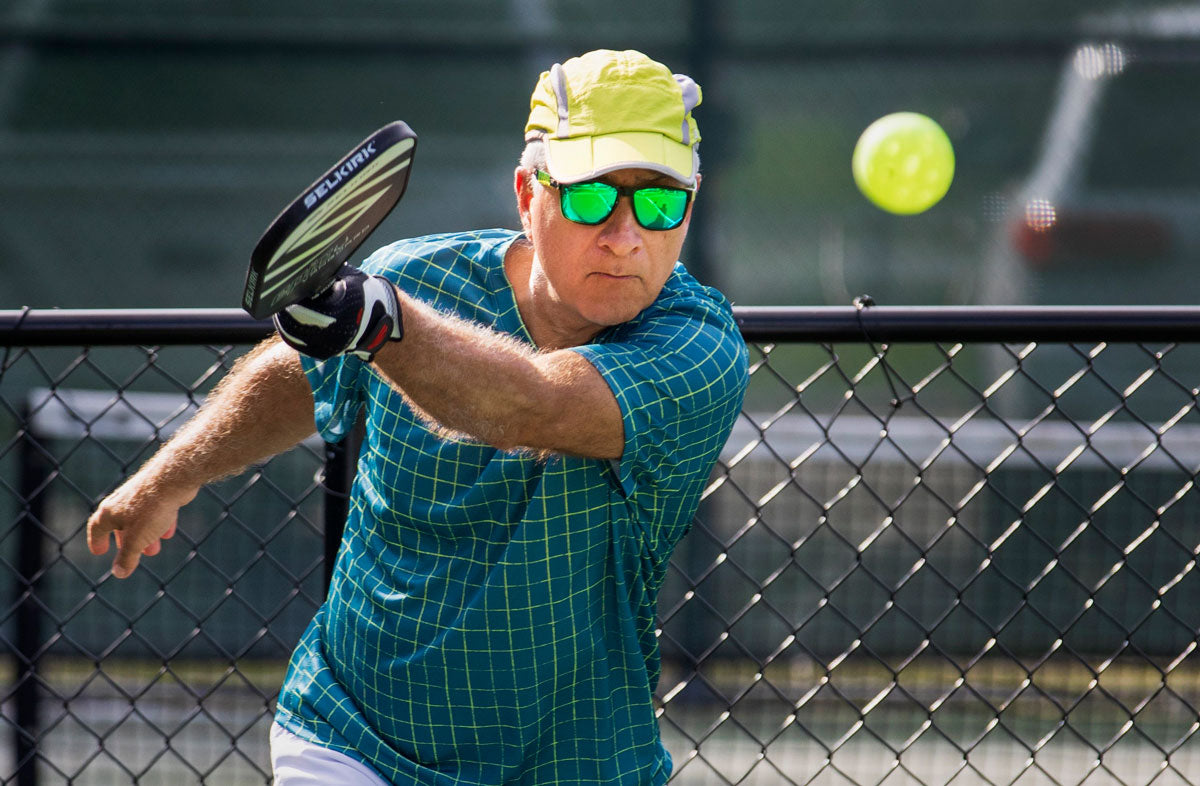
Frank Cerabino is a long-time columnist for the Palm Beach Post in Florida, a pickleball addict like the rest of us, and a newly published author. Check out Frank’s newly released book, I Dink, Therefore I Am: Coming to Grips with My Pickleball Addiction (available on Amazon and a great read (or gift!) for any pickleball player), for pickleball tips and laughs!

